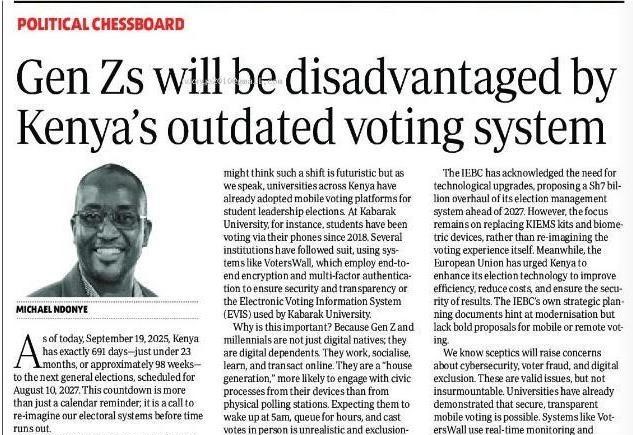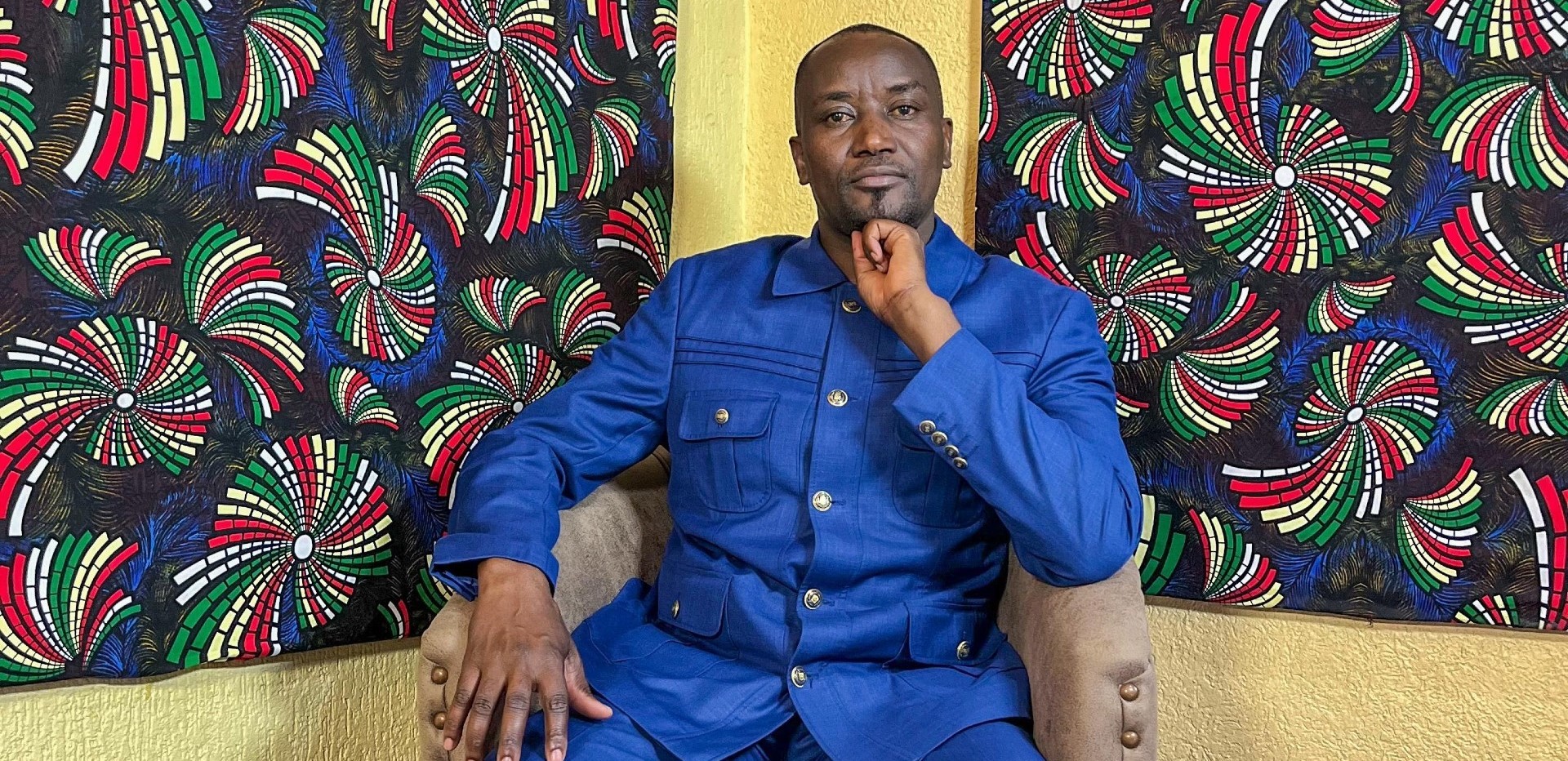- Dr. Michael Ndonye, Dean of the School of Music and Media at Kabarak University, argues that unless the Independent Electoral and Boundaries Commission (IEBC) embraces mobile voting technologies, Gen Z will remain politically sidelined.
A leading political analyst has warned that Kenya’s outdated voting system could disenfranchise millions of young voters in the 2027 General Election.
Dr. Michael Ndonye, Dean of the School of Music and Media at Kabarak University, argues that unless the Independent Electoral and Boundaries Commission (IEBC) embraces mobile voting technologies, Gen Z will remain politically sidelined.
In a thought-provoking column published in The Standard titled “Gen Zs Will Be Disadvantaged by Kenya’s Outdated Voting System”, Dr. Ndonye highlights the alarming disconnect between Kenya’s analogue electoral infrastructure and the digital-first lives of its youth.

Read More
“The IEBC is still stuck in biometric upgrades while universities like Kabarak have already adopted secure mobile voting platforms,” he writes. “If the system doesn’t evolve, Gen Z will simply opt out.”
According to projections, over 14 million Gen Z Kenyans will be eligible to vote in 2027—a 79.4% increase from 2022. Yet, youth turnout in the last election was dismal, with only 39% of registered voters aged 18–34 casting ballots.
Dr. Ndonye points to platforms like VotersWall and EVIS, which offer encrypted, multi-factor authenticated voting systems already in use in academic institutions. He argues that the IEBC must pilot similar technologies to restore trust and relevance among younger voters.
“We are not short of innovation. We are short of political will,” he concludes.
The article has sparked renewed debate on electoral reform, with youth leaders and tech developers calling for urgent action to modernize Kenya’s voting experience.
Stay connected with us on WhatsApp and X for instant updates and breaking news as it happens.












